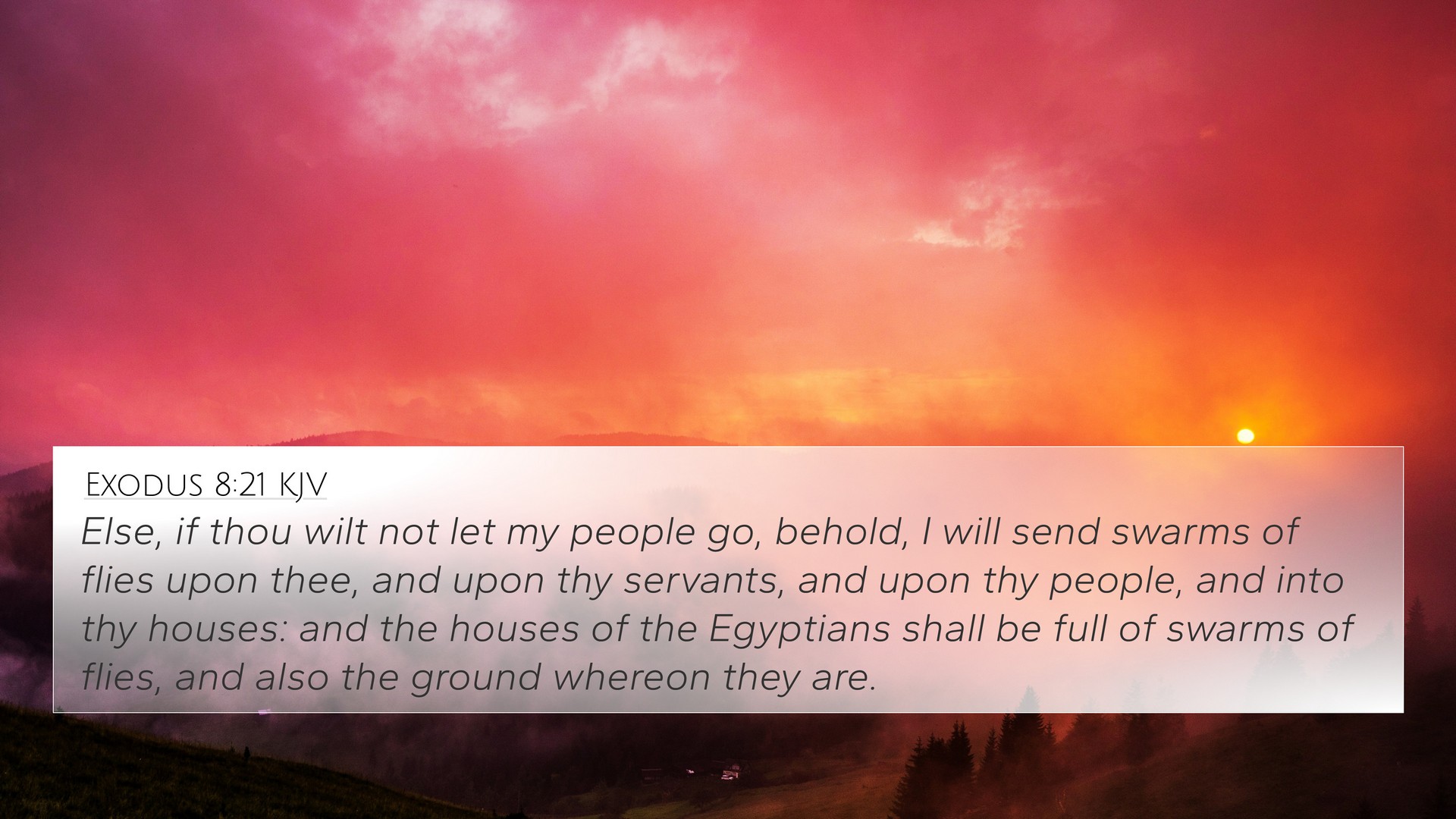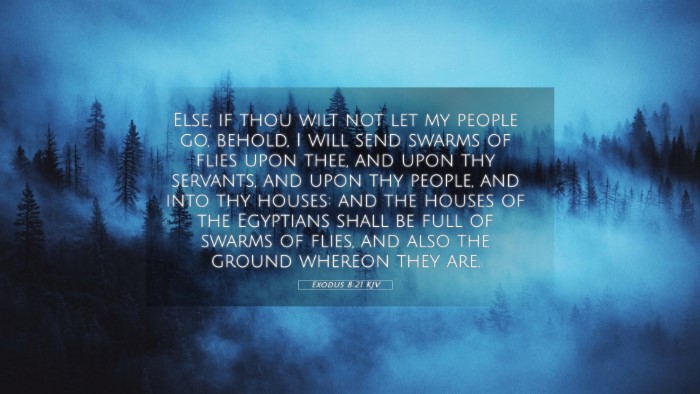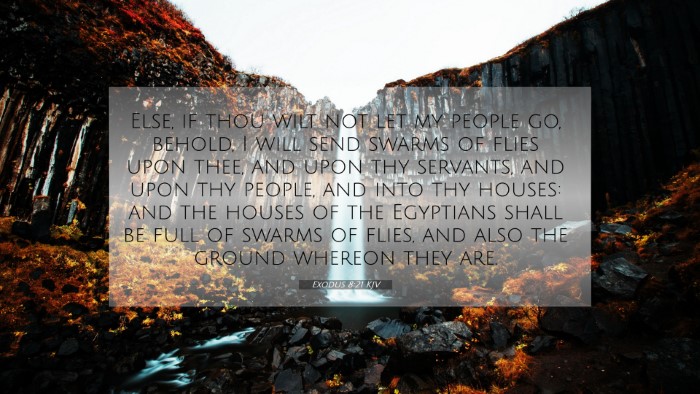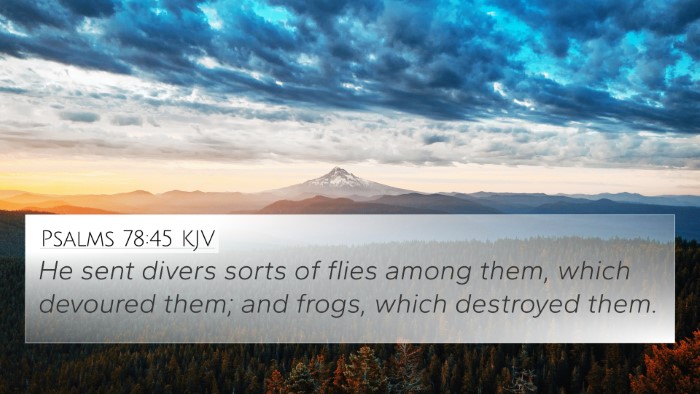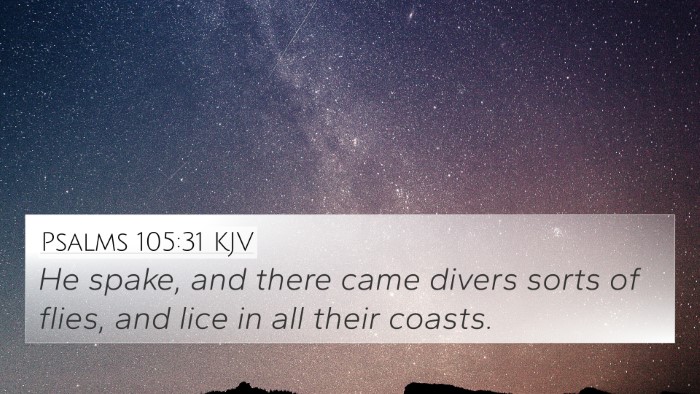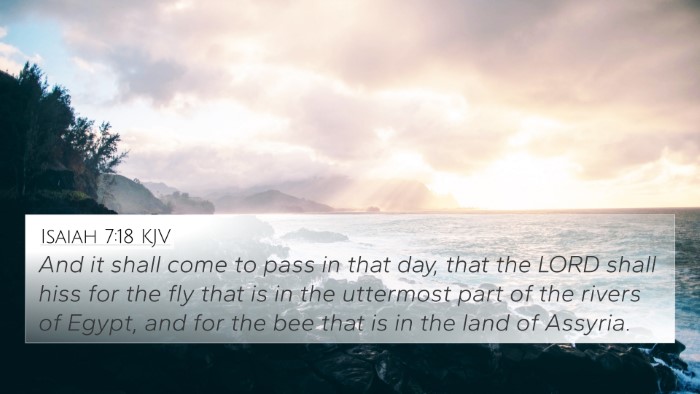Understanding Exodus 8:21
Exodus 8:21 states, "...and if you do not let My people go, behold, I will send swarms of flies on you and your servants, on your people, and into your houses..." This verse is part of the narrative detailing the plagues that God sent upon Egypt to persuade Pharaoh to free the Israelites from bondage. Understanding this verse requires examining its context, implications, and connections to other parts of Scripture.
Contextual Analysis
In the book of Exodus, God is in the process of delivering the Israelites from slavery. The significance of the plagues, including the flies mentioned in this verse, serves as both a judgment against Egypt and a demonstration of God's sovereignty over creation and the false gods of Egypt.
Interpretation and Commentary Insights
-
Matthew Henry's Commentary:
Matthew Henry emphasizes that the swarms of flies symbolize the confusion and suffering wrought by sin and disobedience. He notes that God's plagues were not random but purposeful, aiming to highlight the folly of Pharaoh's stubbornness and the deliverance promised to the Israelites.
-
Albert Barnes' Notes:
Barnes highlights that the term “flies” could denote various types of insects, potentially indicating a swarm that would cause disruption and plague the Egyptians. This verse is a warning but also a clear demonstration of God's power, thereby urging Pharaoh towards repentance.
-
Adam Clarke's Commentary:
Clarke provides a detailed description of how the flies would not only infest the Egyptians but also serve as a critique of Egypt's gods, many of which were associated with insects. He stresses that the refusal to heed these warnings would lead to greater calamity.
Bible Verse Cross-References
This verse is rich with connections to other passages within the Bible. Below are some key cross-references that help to understand the themes of judgment, mercy, and the sovereignty of God in the narrative:
- Exodus 5:1: Moses and Aaron confront Pharaoh, introducing the plea for freedom.
- Exodus 7:14-25: The first plagues that set the stage for God's deliverance.
- Exodus 10:21-29: The plague of darkness, illustrating God's control over creation.
- Isaiah 19:1: A prophecy against Egypt draws parallels to God's judgment.
- Psalm 78:45: Reflects on the plagues and God’s dealings with Egypt.
- Revelation 16:2: The future plagues serve as a reminder of God's continuous judgment.
- Romans 9:17: Speaks to God raising Pharaoh up for His purpose, aligning with the themes in Exodus.
Thematic Connections
The themes in Exodus 8:21 echo throughout Scripture, linking to notions of divine authority and the dire consequences of human rebellion. Each of these themes creates a tapestry of God's relationship with humanity, as illustrated through His persistent calls to repentance.
Practical Applications
Understanding the implications of Exodus 8:21 invites believers to reflect on their own lives. Are there areas where we resist God's calls for change? Like Pharaoh, disobedience can lead us further into chaos and turmoil.
How to Study Cross-References
For those interested in exploring Bible verses that relate to each other, consider using tools such as a Bible concordance or a comprehensive Bible cross-reference guide. These resources can help in discovering thematic connections and drawing parallels between different Biblical texts. Here are some practical steps:
- Identify Key Words: Focus on significant words in a verse to find related passages.
- Use a Bible Cross-Reference System: Many Bibles contain built-in cross-references that allow you to follow themes through the text.
- Incorporate Bible Study Methods: Engage in comparative studies, looking at themes across the Gospels or between Old and New Testament passages.
Conclusion
Exodus 8:21 serves as a profound reminder of God's power and a call to discern the connections between His actions and the overarching narrative of redemption throughout scripture. The insights gathered from public domain commentaries enrich our understanding and prompt us to engage deeply with the Word.
